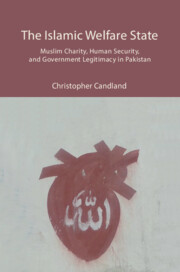Book contents
- Frontmatter
- Dedication
- Contents
- List of Illustrations
- Preface
- Note on Translations and Transliterations
- List of Abbreviations
- Part 1 Introduction
- Part 2 Piety and Public Goods
- Part 3 Pakistan
- Part 4 Charities
- Part 5 Religion, State, and Public Goods
- Afterword
- Acknowledgments
- Appendix: Charities Studied
- Glossary
- References
- Index
3 - Social Welfare in a Muslim Society
Published online by Cambridge University Press: 30 April 2024
- Frontmatter
- Dedication
- Contents
- List of Illustrations
- Preface
- Note on Translations and Transliterations
- List of Abbreviations
- Part 1 Introduction
- Part 2 Piety and Public Goods
- Part 3 Pakistan
- Part 4 Charities
- Part 5 Religion, State, and Public Goods
- Afterword
- Acknowledgments
- Appendix: Charities Studied
- Glossary
- References
- Index
Summary
What are the rights of your neighbor? Help him if he asks for your help. Give him relief if he seeks relief from you. Give him a loan if he needs one. Show him concern if he is distressed. Congratulate him if he meets with any good news. Sympathize with him if any calamity befalls him. Nurse him when he is ill. Attend his funeral if he dies.
—Prophet MuhammadOne hears versions of this purported hadith (a saying of the Prophet Muhammad) across Pakistan. No authenticated hadith matches it precisely. It is, nevertheless, very much in the spirit of the Prophet's thinking about the responsibilities of people to one another in a good society, which to many Muslims is synonymous with an Islamic society. Everyone should be given help, provided relief, offered assistance, and given concern, congratulations, sympathy, medical aid, and commemoration. Many of the injunctions of the Quran and Sunnah if followed privately create public goods. Public welfare is a central theme of the Quran and sirat (life of the Prophet).
The life of the Prophet contained many important lessons, such as care should be given to all, even those who are hostile to us. According to a widely told story, a woman detractor showered the Prophet daily with a bucket of refuse as he made his way past her home. But he neither got angry nor changed his route. As he passed the woman's house one day without incident, he became concerned for her welfare and visited her to inquire after her health. The Prophet's example shows that even one who is hostile is deserving of care in times of need.
By establishing the essentially humanitarian spirit of Islam, this chapter, paired with Chapter 5, determines the span of the chasm between Islamic ideals and public (that is, governmental) practices. Some of this is attributed in part to past government eagerness to prioritize military spending and territorial security and past government interest in assuming resource of and controlling activities in the traditional Muslim charitable sector.
- Type
- Chapter
- Information
- The Islamic Welfare StateMuslim Charity, Human Security, and Government Legitimacy in Pakistan, pp. 33 - 52Publisher: Cambridge University PressPrint publication year: 2024

